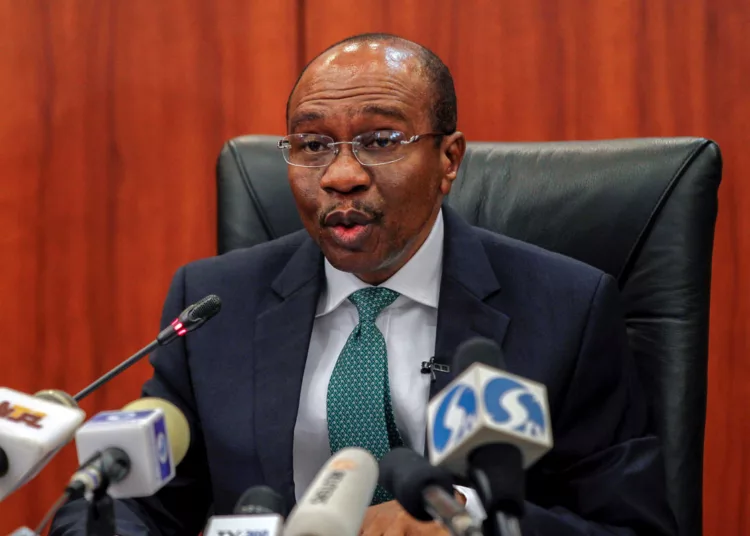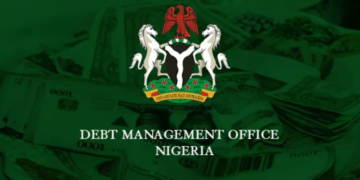Lately, the Central Bank of Nigeria (CBN), under the leadership of Godwin Emefiele, has been in the news for different reasons, mostly the wrong ones.
Among the recent ones have been the bank’s policies of redesigning the naira and cash withdrawal limits. Nigerians are currently making adjustments to the policies, especially with the deadline for redesigning the naira approaching.
Then, the Department of State Services (DSS) alleged that Godwin Emefiele was involved in terrorism financing. The ex-parte suit, filed at the Federal High Court, Abuja, before Justice John Tsoho, was however dismissed by the court.
DSS had averred, in the suit: FHC/ABJ/CS/2255/2022 that its preliminary investigation showed various acts of terrorism financing, fraudulent activities perpetrated by Emefiele and his involvement in economic crimes of national security dimension.
The plaintiff, the DSS, asked the court to grant an order for the arrest and detention of the CBN governor for 60 days, prefacing its prayers on Section 66 of the Terrorism Prevention and Prohibition Act 2022.
But the judge ruled that the DSS provided no concrete evidence to back up its very grievous allegations and that, in any case, it did not require an order of court to arrest a suspect, if it have reasonable proof of wrongdoing.
This ruling was followed by a storm of protests, for and against, of the most sordid kind, with the DSS insisting that it could not be blackmailed to back down in light of the facts at its disposal. The points at issue have grave implications for the nation’s economy and how the world sees us.
Coming at a time of fragile recovery and in the midst of the consequential currency redesign, the outbreak of hostility between the DSS and the nation’s number one banker can only further damage confidence in the economy.
It is heartening that the CBN governor has returned to office after the confusion about his whereabouts but his return has not cleared the air about 1) the current status of the important cash redesign policy, and 2) the status of the weighty allegations against him by the DSS.
We understand that at this election time, politicians steeped in distributive policy and vote-buying, are quite uncomfortable with anything that reduces the cash in the storage. We are also aware that Nigerians in far-flung locations might have a hard time adjusting, even though few of them have anything close to the N500, 000 weekly withdrawal limit imposed by the bank.
As a newspaper, however, we wholly support the redesign and the new limit in cash withdrawal as critical tools to combat terrorism and reduce corruption. The bank, must however, listen to criticisms about the timing and process of implementation.
The second part – the face-off between the governor and the DSS – is more scandalous, not only for the feuding parties but for the country as well. As you read this editorial, the DSS – the country’s lead intelligence agency – is yet to withdraw the allegations of terrorism levelled against the governor. We take that very seriously. A number of his predecessors have had a torrid time with politicians, but none, so far, has been faced with such a serious charge.
How did we get into a situation where the CBN governor is being accused of funding terrorism?
There have been various suggestions, ranging from his foray into politics; his commendable, if controversial, intervention in some areas outside his brief (like agriculture, health and culture, for example); to the introduction of the currency redesign.
While we urge that Godwin Emefiele’s innocence until proven guilty must be maintained, we find it embarrassing that the administration of President Muhammadu Buhari appears determined, as it so often does, to sweep the matter under the rug.
Surely, this can neither be in Godwin Emefiele’s interest. Nor in the interest of the DSS, the President or the country.
Why has Buhari not said a word? His government’s silence gives the avoidable impression that the President is in such a hurry to leave office, he hardly pays attention to governance anymore. Or even worse: that vested interests have captured the state.
Otherwise, it is difficult to understand or fathom why this sordid clash between the Central Bank governor and the DSS is left unattended, while Buhari leads political campaigns and the bank threatens to make scapegoats of commercial banks or other interests who may be sabotaging the implementation of this policies.
It doesn’t add up. And we believe the President should say so, loud and clear. Now.





